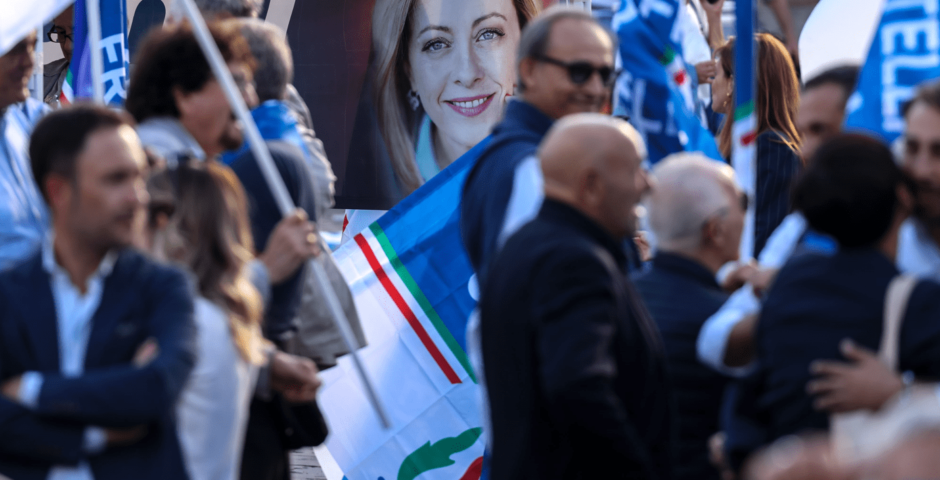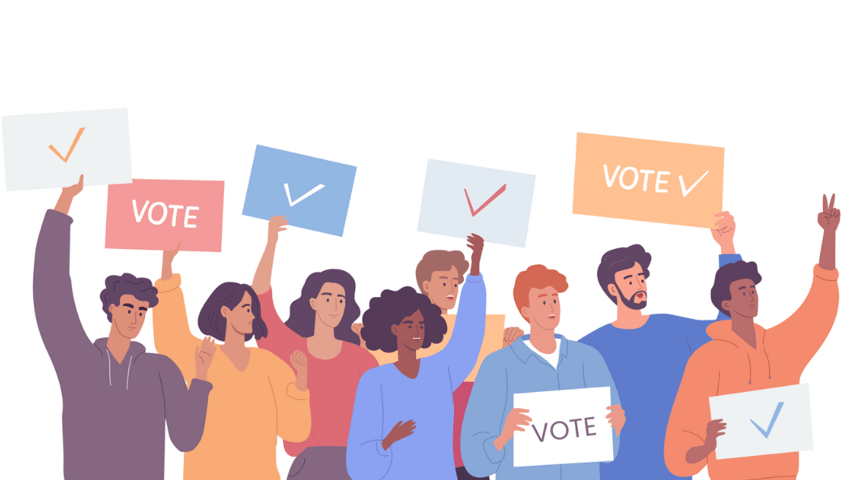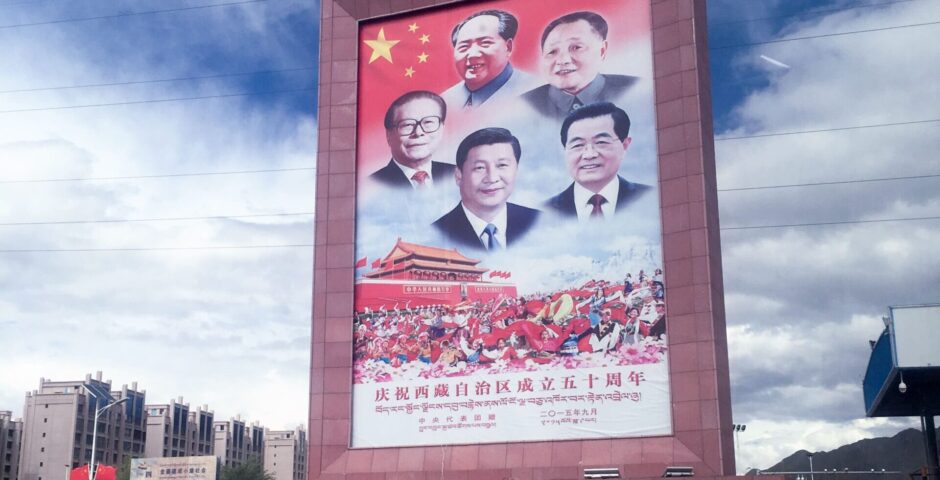Right-wing nationalism in Sweden and Italy part II: from polarization to political games.

Explanations for the rise of right-wing nationalism in Sweden and Italy.
In the first article on right-wing nationalism in Sweden and Italy, we explained how right-wing nationalism as an ideology grew during the past elections in these two countries. We compared some of the central election themes of the right-wing nationalist Sverigedemokraterna (Sweden Democrats, SD) and Fratelli d’Italia (Brothers of Italy). This showed a lot of overlap between themes important to the right-nationalist movement in both countries, including migration, gang violence, traditional norms and values, and European cooperation on the energy crisis stemming from the war in Ukraine. In this article, therefore, we will elaborate further on these issues. We will look at polarization, the bloc system, and internal clashes as practical causes of the rise of right-wing nationalism. We will also look at what the overarching themes can tell us about the rise of right-wing nationalism in Europe.
Polarization, the bloc system and internal clashes
The rise of (populist) right-wing nationalism goes hand in hand with increasing polarization in national politics. It is not that Sweden and Italy only have two parties to choose from during elections, however, both countries have a clear left and right bloc. This has implications for how elections are conducted.
The Swedish tradition of the bloc system provides a way to become a stable coalition in a multiparty system. Block formation is highly visible in Sweden because it takes place before the actual elections. However, this has created a polarized debate in Sweden. Parties either go with the (far) left or with the (far) right. Parties with more extreme positions may end up being incorporated into the government. Middle parties also “choose sides” by joining either the “red greens” or “the alliance”. The middle ground, or collaborations between parties that are essentially close to each other, are hereby excluded. Coalitions between parties further apart are virtually unthinkable (but not impossible). For Sweden, the bloc system leads to a zero-sum game in which the right bloc’s gains mean losses for the left, and vice versa. This year’s Swedish elections show that right-wing nationalism is now more integrated into the political system than before. This is a recent development, SD only joined the right bloc after the 2018 elections. Before that, the party was too small to operate within the bloc system. With the bloc system, right-wing nationalism’s chances of having a more direct influence in government are growing.
Despite SD’s growing influence in the current coalition, previous elections show perhaps even more about the growth of right-wing nationalism among the Swedish population. During the 2018 elections, SD grew from 13 seats to 62 seats in total. SD’s growth decreased during the current election, where SD grew by 11 seats. The fact that right-wing nationalism achieved such great political success during the past elections is thus more a result of SD’s integration into the “political game” of the bloc system, rather than a reflection of Swedish voting behavior. Because of SD’s new position as a tolerated party, its influence is growing rapidly. On the one hand, as a tolerated party, they have a say in cabinet decisions to a certain extent. At the same time, they do not have the same accountability as the cabinet parties. This allows SD to partially escape criticism that will undoubtedly be levied against the cabinet in the coming years, which can be beneficial to the party’s popularity – just look at Fratelli d’Italia.
In Italy, internal clashes in the left bloc possibly caused the growth of the right bloc. Because of bickering back and forth, the left refused to cooperate, even within the parties themselves. For example, on 22 June this year, many members of the Five Star Movement, including Italy’s foreign minister, Luigi De Maio, quit the party. This movement out of the party arose after disagreements between its members and Conte, the then-prime minister, over arms deliveries to Ukraine. On this, De Maio founded his own party: Insieme per il Futuro (Together for the Future). The left bloc was highly polarized and the diversity of ideologies led to a dysfunctional coalition. This remained the case in the run-up to the elections. The right bloc was more stable, and the left bloc continued to clash, making cooperation difficult.
Infighting has both positive and negative effects on the left. Left infighting can strengthen the left bloc because it provides voters with many alternatives when they become disappointed with leftist parties in the coalition. This allows voters to have a more diverse option of left-wing parties to vote for. When it comes to a position in the coalition, however, left infighting can hinder leftist participation. Parties remain small and will have to cooperate despite their differences. Coalition forming for right wing parties has been more successful in both Italy and Sweden.
Explanations for the dominant election themes
The dominant election themes for right-wing nationalist parties can largely be traced back to nationalism as an ideology. They play on ideas of national unity and identity and appeal to arguments arising from the above themes in order to make their point. Right-wing nationalists point to different types of threats and their potential to disrupt social and economic processes in the nation. For example, it is argued that immigration along with Islamic fundamentalism and gang violence poses a threat to national security and identity. In addition, arguments regarding European cooperation on issues such as the energy crisis and the war in Ukraine are more ambiguous. That is, cross-border cooperation is positive insofar as it supports the nation. EU policies that have negative consequences are seen as undermining the authority/sovereignty of the nation-state, which is in line with right-wing nationalist thinking.
When looking purely at people’s voting behavior, the term “ontological (in)security” can explain why people in Sweden and Italy voted more right-wing. Ontological (in)security (insecurity of one’s “being”) is a term that comes from Ronald Laing and Anthony Giddens’ work on psychoanalysis. It does not refer to security as most of us know it, namely as protection from pain and danger. Instead, it refers to a sense of stability and continuity. When people feel ontologically secure, it means they are confident that tomorrow will look pretty much like today. This causes people to have little or no anxiety about the future. Societal changes can disrupt this feeling. To avoid reacting fearfully to this, under narratives are important. These narratives about the society people live in serve as a kind of blueprint for how to act in a given situation. The most powerful narratives include those of religion and nationality because they are an important part of a person’s identity. These give people a sense of being in control.
Disruption of a narrative can create a sense of ontological (in)security. Ontological insecurity occurs when people have lost their ability to maintain a narrative. When they experience this, people may react very differently to restore their stability. Some focus their feelings on physical objects – mainly people. To delineate their identity, some people begin othering. That is, they create an in-group and an out-group in order to establish identities and determine who is and is not part of a particular identity.
Simply put, people engage in we/they thinking. And this is where right-wing nationalism can come in. For many people, a “sense of belonging somewhere” is very important. They do not identify themselves as global citizens but feel a national identity is important. Especially in times of change, people revert to national identity. In recent decades, Europe has changed, for example through globalization and migration, but also through the corona pandemic. When people feel that the in-group and out-group boundaries are not maintained, it creates ontological insecurity for some. Some feel that their nation is no longer the “home” it used to be. When it is thought that the nation and national identity are threatened by a particular out-group (in this case migrants), this leads to increasing nationalistic feelings.
The major economic problems people currently face can also have an effect on ontological security. Not only inflation but also work insecurity, individualism, temporary contracts, self-management, and self-employment, among other things, mean that the current economy does not feel stable, equal, and secure to many people. Today they have work and an income, but that may be different tomorrow. Everything is everyone’s own responsibility, creating the feeling that success and failure are choices. As a result, some people lose faith in the prevailing system and look for ways out. These ways out are different for everyone; some choose crime, others start living off the grid, and still, others choose new narratives, including nationalism – especially if the nationalist groups and/or parties do come up with solutions to bring back stability.
The future of right-wing nationalism in a European context
Sweden will chair the EU Council of Ministers in early 2023, giving it an additional opportunity to influence the EU agenda. The elections in the Scandinavian country will thus have attracted considerable attention from Brussels. In any case, it is clear that several EU issues, such as climate, energy, and migration, played a role in the Swedish elections. However, the EU was not a priority as an election issue. A European approach regarding migration was the only theme SD put forward as an important EU issue. Other parties put forward several themes, including the aforementioned climate, but also crime fighting and trade. The moderates and liberals zoomed in on how the EU can help address cross-border problems in their election manifestos. However, the moderates believe, as do some other parties including Sveriges Socialdemokratiska Arbetareparti (S) and SD, that the EU’s influence should be limited in several areas – despite stressing the importance of European cooperation. All parties that participated in the elections wanted Sweden to remain a member of the EU; nowhere was there any mention of a SWEXIT.
When it comes to European cooperation, Giorgia Meloni also gives mixed signals. On the one hand, she is in favor of using European funds. Among other things, these EU funds are important for the energy crisis, as part of the existing recovery and resilience plan (RRP) that every European member state has. At the same time, political scientist Lucas Tomini expects Italy to adopt a Eurosceptic position similar to that of Poland and Hungary. Yet in practice, it will probably not be so bad. Indeed, Meloni cannot criticize the EU too much because of its dependence on European funds. With one of the highest debts in Europe, Italy cannot simply afford to lose EU funds for the corona and energy crisis. So it remains to be seen how the relationship between Italy and the EU will develop under Meloni’s rule.
Looking at polls, it can be seen that right-wing nationalism is rising not only in Sweden and Italy but in many countries in Europe. Because these parties are often skeptical of the EU as well, this could create challenges in the future. European Parliament elections will take place next year, in 2024. The question is whether the outcome of those elections will show the same as in Italy and Sweden, namely that right-wing nationalism is on the rise. Fratelli d’Italia and SD belong to the European Conservatives and Reformists (ECR) in the European Parliament. It is possible that thanks also to other parties from other European countries, this Eurosceptic bloc will become the second largest party in the European Parliament in 2024. This bloc will then become more influential and may start to obstruct decisions on European affairs. Still, we will have to wait and see how the elections go. Not only do far fewer people vote for the European Parliament, which could affect the outcome, but a lot can still happen in two years. What is certain is that Brussels will eagerly await the election period.
Loes ter Horst is doing a master’s program in Crisis and Security Management at Leiden University with a specialization in Governance of Crisis, after receiving her bachelor’s in Liberal Arts and Sciences (major in International Governance) last summer.
Luna Verbaas is an undergraduate Liberal Arts and Sciences student at Utrecht University with a specialization in International Relations in Historical Perspective and Philosophy, Politics, and Society.
Image: Shutterstock




